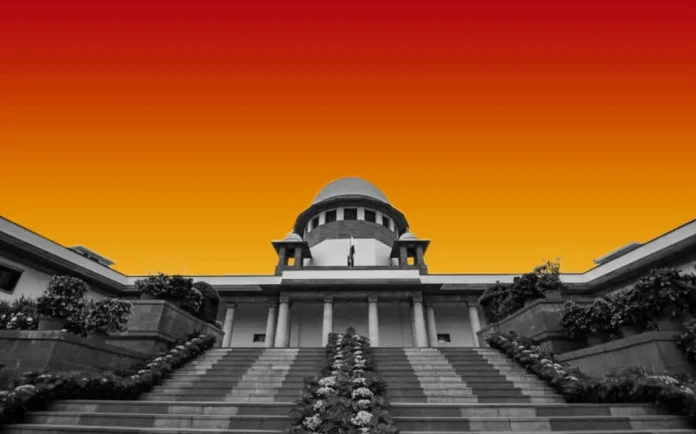The Supreme Court has observed that if a witness turned hostile in a criminal trial, it did not necessarily mean that evidence had to be thrown out entirely.
The Bench of Justice BR Gavai, Justice KV Viswanathan and Justice N Kotiswar Singh noted that any portion of the evidence given by such hostile witnesses, which supported the prosecution’s case, could still be considered.
The top court of the country made these observations, while refusing to acquit two of three persons booked for having assaulted a man with weapons in 2001, eventually leading to his death.
During the trial of the case, most of the witnesses had turned hostile.
After going through the case records, however, the Bench noted that this shift in testimony was likely done to shield the convicts who were known to them.
It further noted that the testimonies of other neighbours appeared to be highly unnatural and untruthful. It seemed they were hesitant to tell the truth, in order to protect the appellants, noted the Court.
The Bench eventually modified the murder conviction of the appellants to culpable homicide not amounting to murder.
The Apex Court noted that since the appellants had completed 10 years and 3 months of imprisonment during the pendency of their appeals before the High Court and Supreme Court, they were sentenced to the period already served in jail.
The convicts had earlier been released on bail in 2012 by the top court of the country. The final verdict of the Court allows them to remain out of prison, provided they paid a fine.
The Bench directed the appellants to pay Rs 50,000 each to the mother of the deceased, adding that they would be imprisoned for six months if they failed to pay this fine.
The Apex Court passed the order on an appeal filed by the convicts challenging a 2009 Chhattisgarh High Court judgment in a murder case concerning the assault and subsequent death of one Suraj in 2001.
While upholding the conviction and life sentences of convicts – Govardhan and Rajendra, the High Court had set aside the conviction of their father, Chintaram, the third accused in the case.
The appellants challenged their conviction by filing an appeal before the Supreme Court in 2011.
They contended that most of the prosecution witnesses, except the mother of the deceased, had turned hostile and did not support the prosecution’s case.
The convicts further submitted that the deceased’s mother was pressurised into giving statements against the appellants.
As per the appellants, the testimony of the deceased’s mother was uncorroborated and lacked independent supporting evidence, making it insufficient to sustain the convictions.
The appellants claimed that the High Court had acquitted their father based on the same evidence used to convict them. This violated the principles of parity, they added.
The Bench, however, rejected these arguments, placing reliance on the judgment in Gangadhar Behera v State of Orissa.
The Apex Court observed that even if most of the evidence presented by the prosecution appeared deficient in some respects, an accused’s conviction could be upheld if the remaining evidence was sufficient to prove guilt, regardless of acquittal of the co-accused.
The Bench noted that it was the court’s duty to distinguish between reliable and unreliable evidence.
Noting that the acquittal of the father of the appellants did not warrant the acquittal of the appellants, the Apex Court ruled that there was sufficient evidence to establish their guilt beyond reasonable doubt.
Speaking about reasonable doubt, the Apex Court said that such doubt must be free from suppositional speculation. It must not be the result of minute emotional detailing. The doubt must be actual and substantial and not merely vague apprehension. A reasonable doubt was not an imaginary, trivial or a merely possible doubt, but a fair doubt based upon reason and common sense as observed in Ramakant Rai vs Madan Rai, it added.
The Bench held that despite minor contradictions and embellishments in the testimony given by the deceased’s mother, her account of the incident was consistent overall.


